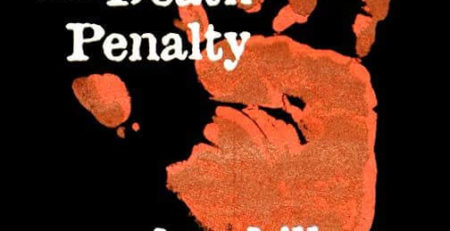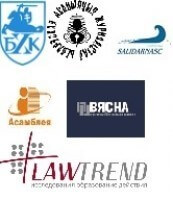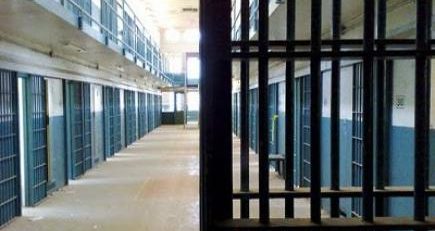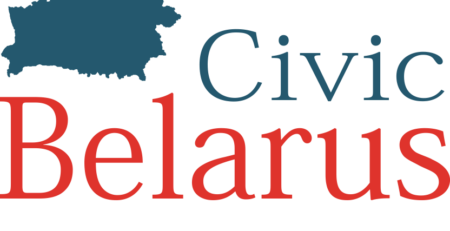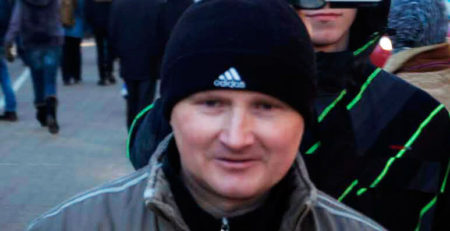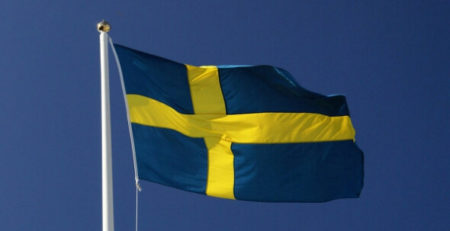The Civil War refugee from Congo brought to despair in Akrestsin
The human rights activists draw attention to the inhumane and illegal treatment of foreign citizens, who have been spending months in the Center for Isolation of Delinquents (CID) in Akrestsin before their deportation.
After their release the activists, preventively detained before and during the World Cup, spoke about hundreds of detainees in Akrestin, including homeless people, prostitutes, drug addicts and petty thieves. In this way also the conditions, in which foreign citizens awaiting their deportation live, became known.
The human rights activist, Anastasia Loiko, posted to Facebook an appeal to send a postcard with words of support to Congolese Patrick Mangalua. “He’s in terrible depression and refuses to talk even to his cellmates,” writes Loiko. Letters to Patrick should be written in French, she adds, to the following post address: 220089, Minsk, 1st Lane Akrestsin 36 – CID Minsk police, Patrick Mangalua.
By the way, the human activists know the surname “Mangalua” just from earshot, as CID refuses to give any information about Patrick.
Patrick’s story became known thanks to the article published on internet site “poslezavtra” (the day after tomorrow).
“Patrick from the Democratic Republic of Congo has already been in prison for six months. He speaks only French and no interpreter was given to him naturally. He is a veteran of never ending war waged by global corporations in Congo. He was wounded several times. He arrived to Minsk to attend university, he enrolled to courses,… but the ambassador of his “democratic” republic called him up and informed him, that he had to go to fight again. Patrick tore up his passport and refused to obey. The young man has obviously got problems – he does not speak, does not wash himself, eats hardly, and when he hears someone telling his name, he is getting nervous. Several times they put him on a “solitary”, where he sat alone and often cried in despair.”
The information submitted by the internet site valerikpunk, confirm Dmitry Dashkevich and activist of the campaign “Food not bombs”, Ales Kurlishchik.
Dmitry spent several days with Patrick in the cell. “I was there with an African, who, they say, was in prison for about a year. He came here to become a pilot, and had to go to prison instead of it. The poor man has been brought to such a state, that he just lies almost 24 hours a day. He removed his mattress, and covers himself with a blanket. He gets up just to eat, to go to toilet or when he has to go for the check-up. He does not speak at all. I tried to communicate with him, but he just waved his hands. He does not go anywhere, does not wash himself, does nothing.”
Ales Kurlishchik has been spending all the 15 days, for which he had been sentenced to prison, in Patrick’s company. The human rights activists hope that after Ales’ liberation they will get more information about the Congolese.
Anastasia Loiko says, that she has not been able to clarify either Patrick’s exact status, or his whole name with the leaders of CID so far.
Suffering of foreigners in Akrestsin is explained by several reasons: from indifference of the law defenders to the economic factors.
Alexander Tatura, head of the Department for external labor migration, refugees and asylum at the Citizenship and Migration Board, listened attentively to Patrick’s story on the phone. However, the fact, that the CID refuses to inform the human rights activists on the Patrick’s status, he has commented in following way:
“We live in a legal state. Some procedures are recognized as legitimate. If there is a right to appeal for certain information, they have the right to do so. If there is not such a right, then nobody has the right to receive the information.”
As the result of absence of the law, which would give the human rights activists such a right, the management of CID does not allow Patrick from Congo to be in contact with the outside world. His fate depends entirely on the Belarusian law system.
As to economic reasons, according to Belarusian law, deportation has to be financed by the deportee, his relatives, employers, diaspora, and only in exceptional cases – by the State. This means that Patrick’s relatives have to be found first.
Anastasia Loiko speaking about this matter: “As Patrick has torn apart his passport, there is a problem with the confirmation of his identity. To deport a person, we, in our country, usually look for his relatives, who send the money to cover the expenses of the deportation. However, Congo is one of the poorest countries in the world. Perhaps, nobody will be able to get in contact with Patrick’s relatives or they will not be able to send the money.”
The process of deportation from Belarus could be suspended, for example, by asking for political asylum. However, Anastasia Loiko doubts if Patrick even knows about this opportunity.
“Co-workers of CID do not inform even Belarusians about their rights, let alone the foreigners,” adds Loiko.
However, Patrick’s story is not an exception. Such a conclusion can be drawn also from the report of the above mentioned internet site valerikpunk. Andrei Tkachev, activist, sentenced to 15 days of prison tells a similar story.
Tkachev shared a cell with Sergei Petrov, a citizen of the Russian Federation from Kazan city. The Russian was detained for suspicion of fraud and his official status is “suspected”. According to law, he should not be detained in CID.
Andrey Tkachev says: “They originally detained him to determine his identity and held him there for three days. Then they repeatedly falsified his reports, saying that he was drunk and swearing in a public place. Finally nobody explains his status to him and the employees of CID are suggesting that he had been detained and was waiting for the deportation; as they were not able to prove the alleged fraud. He refuses all the accusations. The situation is more complicated by the fact, that he has no adequate legal assistance and nobody informs him about his rights and status. So he is in the cell waiting for God knows what.”
On the background of dozens of testimonies of the activists who were detained during the World Cup on falsified protocols, such information can hardly be assumed to be just a fanciful “fairy tale”, which prisoners tell their cellmates to gain themselves authority or to bring certain information to the ears of the investigators.
Radio Liberty had requested Belarusian representation in the UN agency for refugees. The agency representative said that he had already sent the corresponding request to the management of Akrestsin, as he learned about the history of Patrick from internet.
“We have made a formal request to the Department of Citizenship and Migration Board to clarify, whether Patrick really is there. And if he is really there, then we will visit him to find out, whether he has applied for the refugee status in Belarus.”
According to the information of the Migration Department about two and a half thousand people were deported from Belarus in 2013. 880 of them were forced to do so. Over twenty thousand foreigners were accused of violating immigration laws. Patrik as well was released on June 5th and sent to Congo, but the number of detained foreigners which the public learns about, grows.



